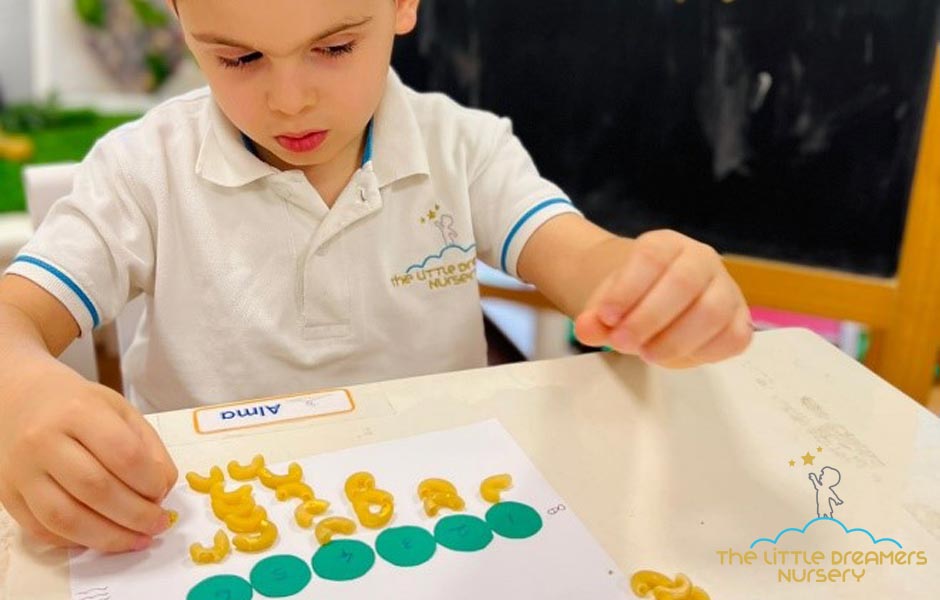The British Curriculum is renowned worldwide for its comprehensive and well-rounded approach to education, emphasizing holistic development and critical thinking skills. In this content, we will provide an overview of the British Curriculum fs1 syllabus and explore its significance in the global education system.
Additionally, we will delve into FS1 (Foundation Stage 1), the initial stage of early childhood education, and highlight its importance in laying a strong foundation for lifelong learning. So keep reading to know more about the British curriculum fs1 syllabus.
What Is British Curriculum Fs1 Syllabus And Why Does It Matter?
The British Curriculum FS1 syllabus, also known as the Foundation Stage 1 curriculum, is an educational framework for children aged 3 to 4 in the United Kingdom. It is an important curriculum because it sets the foundation for a child’s learning journey and development during their early years.
The syllabus focuses on nurturing the holistic growth of children by integrating various aspects of learning such as communication, language, physical development, personal, social, and emotional development, and literacy and numeracy skills.

Key Components Of The British Curriculum FS1 Syllabus
The key components of the British Curriculum FS1 syllabus include play-based learning, individualized learning experiences, structured outdoor play, creative activities, and fostering a positive learning environment. Play-based learning encourages children to explore, experiment, and discover new things through hands-on activities and interactive experiences.
Individualized learning experiences cater to each child’s unique needs, interests, and abilities, allowing them to progress at their own pace. Structured outdoor play promotes physical development and enhances children’s understanding of the natural world.
Creative activities such as art, music, and storytelling help children express themselves and develop their imagination. Fostering a positive learning environment ensures that children feel safe, supported, and motivated to learn.
 Comparison Of The British Curriculum FS1 Syllabus With Other Early Years Education Frameworks
Comparison Of The British Curriculum FS1 Syllabus With Other Early Years Education Frameworks
When comparing the British Curriculum FS1 syllabus with other early years education frameworks, it is important to consider the similarities and differences in their educational approaches, goals, and outcomes.
While the British Curriculum FS1 syllabus emphasizes play-based learning and individualized experiences, other frameworks may prioritize academic readiness, cultural values, or specific learning outcomes. For example, the Reggio Emilia approach in Italy focuses on child-led learning, project-based learning, and collaboration among children, teachers, and parents.
The Montessori method emphasizes independence, self-directed learning, and hands-on materials for developing skills and knowledge. By comparing different early years education frameworks, educators and parents can gain insights into the diverse approaches to supporting children’s learning and development.
Benefits Of Following The British Curriculum FS1 Syllabus For Children’s Cognitive, Social, And Emotional Development
The British Curriculum FS1 syllabus offers numerous benefits for children’s cognitive, social, and emotional development. Firstly, it provides a structured framework that focuses on key developmental milestones, ensuring that children are exposed to age-appropriate learning experiences.
This helps in building a strong foundation for future academic success. Additionally, the curriculum emphasizes the development of critical thinking skills, problem-solving abilities, and creativity, which are essential for cognitive growth.
In terms of social development, the FS1 curriculum encourages collaboration, communication, and teamwork among children. Through interactive activities and group projects, children learn how to work effectively with others, develop empathy, and build positive relationships with their peers. This fosters a sense of community and belonging, which is crucial for social development.
Moreover, the FS1 British curriculum places a strong emphasis on emotional development by promoting self-awareness, self-regulation, and emotional resilience. Children are taught how to identify and express their feelings, manage stress and anxiety, and develop a positive self-image.
This equips them with the necessary skills to navigate the complexities of their emotions and build healthy relationships with others.
read more: School vs Nursery for FS2
Conclusion
The British Curriculum FS1 syllabus provides a structured and comprehensive framework to support the early learning and development of young children. Through a holistic approach that incorporates various areas of learning, including communication, language, mathematics, and creativity, the syllabus aims to nurture children’s curiosity, creativity, and critical thinking skills.
By following this curriculum, educators and parents can help children build a strong foundation for future academic success and lifelong learning.







